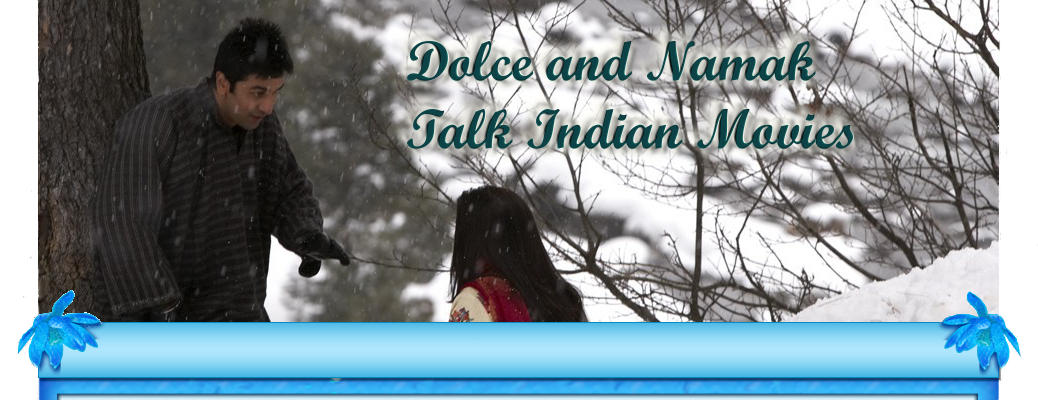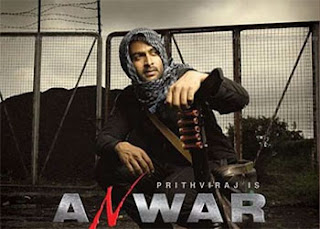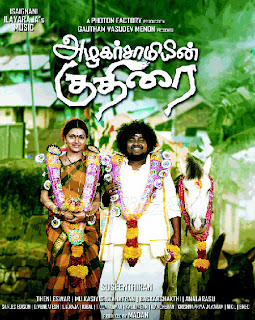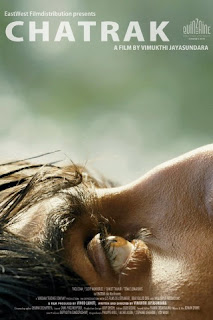More importantly, how do I reconcile my moral compass and its respect for life with revenge sagas like Dookudu, Munna, Kaakha Kaakha and Anwar, all movies that I quite enjoyed? (And yes, this post is a result of having just seen the Telugu film Dookudu in the theatres, a movie about a police officer who takes revenge on the people who offed his father, and reading that it's on its way to become a superhit.)
The first question is actually easier to answer. I still find the violence in American movies way too realistic to tolerate, and in fact, I still cover my eyes through the more gruesome parts of Indian films as well. It helps that most of the time it's more about the rowdies flying like frisbees than it is about chopping off their legs with machetes, so I suppose if I could watch Tom and Jerry inflict pain on each other when I was a kid (well, usually just Jerry on Tom but you get the idea), this is the somewhat grown-up version of it. Besides, most of the times I watch it for the choreography and the creativity of the fights rather than for the actual end result. It never ceases to amaze me how many objects can be broken with one rowdy and how artfully two people can tangle in midair.
 |
And even though I still have an undying love for a good reverse roundhouse kick, I have developed a soft spot for all kinds of flying kicks too, some more realistic than others.
 |
Lately however, what with guns and water taps becoming more popular, the good old kick in the neck followed by a bloodless knock-out seems to have been replaced by buckets of fake red dye and impalings. And this is where I think my old lack of tolerance for violence will make a comeback.
But that's only part of what I wanted to talk about.
Because once we get past the visuals, we come to the more thorny issue of morals. And morally ambiguous films. You know, the ones where the hero just "gets them all" in the end. Not to say that only the South does it, because that's certainly not true, Ghajini, Shor in the City and A Wednesday being stellar examples of Bollywood films that seem to condone killing off all the bad guys. And not to say that Hollywood doesn't do it, though for the most part they tend to sugar-coat it as superhero movies, historicals, war movies and all kinds of scenarios far enough removed from the immediate reality that they do away with our moral compass by sheer virtue of displacement. Certainly something worth talking about as well (why the moral compass doesn't apply there), but perhaps by someone more qualified in the field of American movies than me.
I think one way or another every film industry does it because, let's face it, it satisfies a basic human need that wants to see all evil disappear even if it's only for 10 minutes after the climax of a movie. Revenge sagas are a lot like spicy food to me. Spicy food (specifically hot chillies) apparently activates the pain receptors in the mouth and throat which triggers the brain to pump your heart faster and also to release endorphins. But at the same time, you know that it cannot harm you, so what you're really getting is free endorphins. Revenge sagas seem to work in much the same way: you get the endorphins associated with the bad guys getting offed, but none of the guilt or pain associated with it if it were for real. It doesn't stop you from feeling compassion in real life just like spicy food doesn't stop you from feeling pain, but it definitely helps you feel good for the moment.
I would imagine in a country where terrorism and corruption are every-day news, that need for catharsis is exacerbated, which would explain why there is virtually no need to sugar-coat anything and the hero can even be a cop and still get away with killing off all the villains. But is there no limit to how many people a hero can kill off before anyone wonders: what if they're not all bad? Sure, a film like Dookudu makes a pretty solid case for eliminating them, and besides you get to really admire the creative ways in which the villains are done away with, but is Mahesh being badass reason enough to not even wonder: what was this guy's side of the story?
Malayalam movie Anwar gets particularly puzzling on the topic because the bloody (and gorgeously shot) finale is preceded by some discussions in the beginning of the movie about precisely that: should all terrorists or suspected terrorists be trialed and sentenced to death based on word of mouth or ethnicity? Which in the end begs the question: if the rest of the world is not fit to judge them, why is the hero? Just because he's been wronged? Now don't get me wrong, I did appreciate the angle of not pitching different religions against each other, for a change, but nonetheless, does that make anything right?
Sometimes I think my brain has trained itself, and perhaps this is also the case with Indian audiences, to view this as a game of sorts, to the point where it doesn't actually have anything to do with what I find acceptable in real life and what I don't. After all, I don't find fist-fighting acceptable in real life either, and yet here I am cheering for all these guys to kick ass, right? Similarly, while I would always be in favour of a fair trial for anyone, it doesn't create much of a cognitive dissonance to see the chief villain getting beaten to a pulp and then hung by some loose pipe or hook. It still bugs me on some level, but I can still enjoy the movie just fine. But is it really only that?
I'll tell you a quick story from my motherland. There was a ruler once, some 500 years ago, who would give an awfully painful death to anyone who sinned against society: thieves, liars, criminals, etc. He also had many battles to his name and even some brilliant political moves, but I bet people would be hard pressed to name them. However, everyone remembers him for the fact that he cleaned the country of its bad elements. Nowadays when the country is about as corrupt as India and hopeless for a recovery, his name gets mentioned a lot in association with the only possible solution to the corruption plague: kill'em all!...
I used to only think of revenge plots and kill-them-all climaxes as catharsis, but with the inclusion of state powers more and more lately, I am slowly starting to see another explanation. If catharsis was the only goal, then the hero could just be a likable pokiri (no pun intended), standing on the side of good and triumphing against evil. But with the hero being in the force (police, military, what have you) or being helped by someone in the force, it becomes much more than the "side of good", now it's also the "side of just". Not only justice for the hero, but for all of society. It's a small shift, but I think it changes a lot in the perception of those watching. You see, it's not just the lonely hero getting revenge for the death of his lover, now he's also the hand of justice, purging out the bad elements in society. It's no longer just a personal battle, it becomes symbolic of everyone's battle against terror, corruption and evil-doers, because the law is on the hero's side.
Which makes me wonder, if we think of artists as a mirror of their times, as well as the instruments for change in an era, how much of this is intentional? Are film makers really trying to suggest this type of no-trial justice is what should be happening? I don't dare think so, but it does make me wonder. Certainly audiences are becoming more and more interested in this type of plot, fact proved by the fact that just today we have another "cop out for revenge" movie coming out: Force.
Maybe it's not only catharsis after all, maybe there's more to it than just seeing the hero being badass...
As it turns out, my moral issues with these films are rather shallow, because this is about much more than an ethical question about whether or not the police should protect people or kill them. Not only does the kill-em-all plot fulfil a need to see justice triumph, it also, in a very twisted way, gives one hope that this can happen *with* the help of the law.
I think I am going to feel a whole lot better about Pokiri the next time I watch it.




















